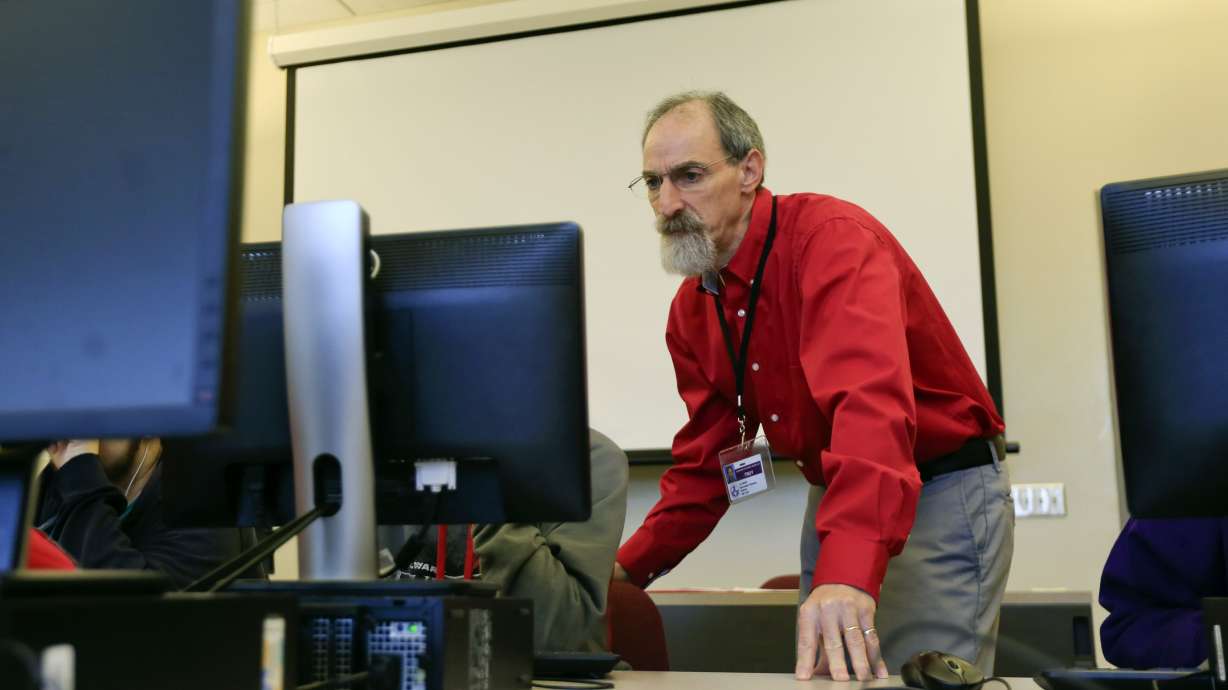Estimated read time: 4-5 minutes
This archived news story is available only for your personal, non-commercial use. Information in the story may be outdated or superseded by additional information. Reading or replaying the story in its archived form does not constitute a republication of the story.
BUFFALO, N.Y. (AP) — School leaders and teachers who have argued that test scores alone shouldn't make or break a school hope the new federal education law will offer a truer picture of success.
States still will have to test students in math and reading to judge school quality under the Every Student Succeeds Act, but that law, the successor to No Child Left Behind, also makes room for things like school climate and student engagement.
"It's an important change," said Chris Minnich, executive director of the Council of Chief School Officers. "We've said for a long time that there are other factors that matter as part of how a school's doing, other than just simply test scores."
The law, signed last week by President Barack Obama, lets states choose their own "valid, reliable, comparable and statewide" additional measures. Some options are student and educator engagement, access to advanced coursework, post-secondary readiness, and school climate and safety.
No Child Left Behind waivers that states were granted hint at what they may end up incorporating beyond the required testing.
"Advanced coursework is showing up in many of them, people taking (Advanced Placement) courses, (International Baccalaureate) courses, dual enrollment courses where they're getting college credits," Minnich said.
But not everything is as readily measured, and educators say the next big challenge for states will be figuring out not just what to use, but also how.
"We have to be very careful that we're not just replacing one thing that's easy to measure with something else that we're including just because it's easy to measure," said Bob Farrace, spokesman for the National Association of Secondary School Principals.
Factors like students' intellectual curiosity and whether they are hopeful for the future are also traits that will help them in college and the work place, Farrace said.
"And if that is, in fact, one of the goals, then these are things that are worth measuring," he said. "They might not lend themselves immediately to a statistic, but that doesn't mean they don't count."
The change is one part of the law that shifts more decision-making powers back to states.
Eve Shippens, a teacher in Buffalo, said that the change "opens to door to add some quality features," but that she is skeptical of whether any new measure can work fairly across all urban and rural schools in a state.
"As if children and education can be standardized to that level; I think we're still going to have a lot of problems," Shippens said. The Martin Luther King Multicultural Institute where she teaches in an impoverished neighborhood will close in June because of consistently low test scores, despite the kind of extra professional development and training that could become one of the new accountability measures.
Alabama will set up a task force of parents, teachers and others to look at the new law, said State Superintendent Tommy Bice. In Colorado, discussions already are underway with the districts about what accountability measures to use, interim Education Commissioner Elliot Asp said.
Some schools have already experimented with school-climate surveys to gauge factors like whether students feel challenged by their teachers or would report being bullied.
"This will give us an opportunity to bring all shareholders to the table to create a system that not only holds schools and districts accountable for students' education, but also celebrates the good things happening in our schools," Kentucky Education Commissioner Stephen Pruitt said in a statement.
"That particular test score is such a tiny, tiny little snapshot of what happens on that one day that it really doesn't do justice to what goes on the other 180 days," said Seth Cohen, an earth science teacher in Troy, New York. "The idea of public education is to graduate well-rounded students so that they can become informed citizens, and that doesn't have to do with just the test they take. It has to do with all the other things that go on in a school system."
But Minnich cautioned against using too many outside factors in pursuit of a more holistic picture.
"The important thing is that as you add these things in," he said, "we don't lose how a student is doing as the most important factor in how a school is doing."
Copyright © The Associated Press. All rights reserved. This material may not be published, broadcast, rewritten or redistributed.








